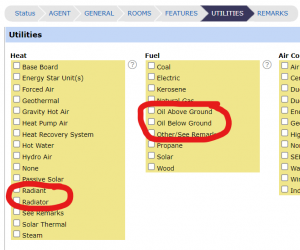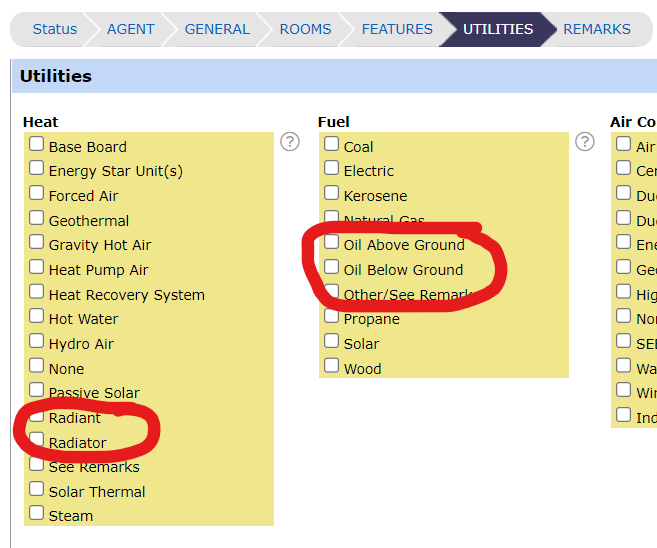I’ve posted many times that people seeking to buy a home should use a buyer agent. The transaction is too expensive and complex to not have your own exclusive representation. Recent events have inspired me to address buyer agents themselves, as the role is a huge position of trust from the client.
 Buyers don’t need a buyer agent simply because they can open a lockbox and facilitate an offer. To do their job properly, buyer agents have an obligation to perform due diligence on the property they represent their buyers on, and sadly I’m not seeing that all too often. Buyers should expect that their agent will do verify a significant amount of information on behalf of their client:
Buyers don’t need a buyer agent simply because they can open a lockbox and facilitate an offer. To do their job properly, buyer agents have an obligation to perform due diligence on the property they represent their buyers on, and sadly I’m not seeing that all too often. Buyers should expect that their agent will do verify a significant amount of information on behalf of their client:
- Building department. The agent should get their physical selves to the municipality’s building department and check the full file on the property- the property card, the certificate of occupancy, any open permits, and in short make sure that the building department data on the house matches what is in the MLS. If the number of bathrooms is off, or there is no CO for a finished basement for example, the client needs to know.
- Tax Verification. The agent should call the tax assessor and get the true tax figure on the property for the current year. “True tax” means it is the official bill before any discounts, like STAR or veteran benefits.
These are at minimum. I wrote recently the importance of the home inspection, and a good buyer agent should have a solid contact list of not just inspectors, but all affiliated resources in mortgages, attorneys, title, contractors, and other related industry partners.
Why am I saying all this? Don’t buyer agents already do this stuff reflexively?
Sadly, no. Too many buyer agents rely on what the listing agent provided on the MLS listing, and that’s inviting trouble. I’m not excusing listing agents for inaccurate information, but the system breaks down when it doesn’t account for the necessary checks and balances of human error.
I’ll explain how easily this breakdown can occur. There are hundreds of data inputs required when a listing is uploaded into the multiple listing service. Many of the fields have either drop down menus of pre-loaded choices or long lists with boxes to check. There are 16 options alone for heating type, including “radiator” and “radiant,” which are distinct from each other. Recently, we had a listing with oil heat erroneously checked as “oil tank above ground” when the correct choice should have been “oil tank below ground.” The mistake was discovered in early quality control and rectified. Unfortunately, an agent who submitted an offer on the property printed the listing on a sheet of paper, submitted an offer, and never verified anything at the town building department. That agent’s client made an offer that was initially accepted, paid for a home inspection, and spent a week of their life in the early stages of the process before discovering that the oil tank was in fact buried below ground and would require testing.
The buyer withdrew their offer, and the seller fortunately had another offer waiting in the wings that was acceptable also. But the backup offer could have gone south in that week, and the seller could have been in a compromised position. That buyer wasted time and money on a home they could have passed on had their agent done their job and gone to the building department like they should have. Their excuse was that they lived too far from the property to do so. The cascade effect of lost time, lost money and potential loss of a sale spread out over half a dozen parties: the buyer, the seller, their respective attorneys, and the other parties with offers on the property. This was all because that agent couldn’t be bothered to drive to the building department.
This was a mistake that was caught early, but I’ve attended closings where the buyer has been surprised by higher taxes than they expected, homeowner association fees they weren’t aware of, and in some cases, no certificate of occupancy for improvements made the the house they they were now on the hook to legalize. In all of these cases, their buyer agent was paid a commission. I know that in many municipalities in Westchester and Putnam Counties that the building departments don’t have records online, and in some cases an agent has to file a FOIL (freedom of information law) request, but that’s the job. You can’t cut corners.
In my feistier moments, I have explained to my own team that they can’t expect to be paid just for opening the door, filing a few papers, and holding the client’s hand for a few weeks. They have to treat the due diligence as if they were buying for themselves.
Any consumer who considering hiring a buyer agent or working with one now should ask the agent what they do for advocacy, and that should include the crucial component of due diligence.
“Trust but verify.”
-Suzanne Massie

 Facebook
Facebook
 X
X
 Pinterest
Pinterest
 Copy Link
Copy Link


